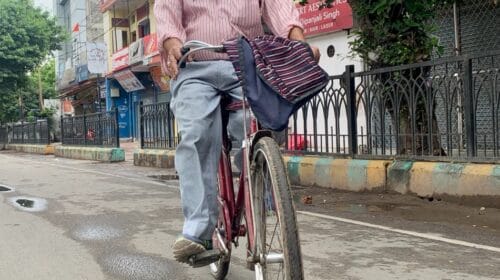Medical advice: Heat Stress- Care for the Elderly
What is heat stress?
Heat stress occurs when the body can’t cool itself and maintain a healthy temperature. The body normally cools itself by sweating, but sometimes sweating isn’t enough and the body temperature keeps rising. Heat stress is also known as hyperthermia.
Symptoms of heat stress
The symptoms depend on the heat-related illness, but may include:
- Hot and dry skin
- Paleness
- Rapid heart rate
- Muscle cramps
- Nausea and vomiting
- Disorientation and confusion
- Delirium
- Fainting or coma
- Worsening of pre-existing medical conditions
Risk factors for heat stress
Factors that increase the risk of heat stress in elderly people include:
Self-care issues – some older people are frail or have reduced mobility or mental illness. These factors make it difficult for the person to take adequate care in hot weather.
Isolation – there is no one to take care of the person if the person ignores symptoms.
Physical changes – the ageing body doesn’t cope with sudden stresses as quickly as a younger body. For example, on hot days, elderly skin is not able to produce sweat and cool the body as efficiently as younger skin.
Chronic medical problems – older people are more likely to have chronic medical problems. Certain conditions make the body more vulnerable to heat stress.
Medications – older people with chronic medical problems usually take medications on a regular basis. Some medications can hinder the body’s ability to regulate temperature.
Kidney conditions – if you take medications for kidney problems, you need to talk to your doctor before you increase the amount of fluid you drink.
Suggestions to avoid heat stress
It’s important to be sensible in hot weather, for example, stay indoors, avoid strenuous activity, wear lightweight clothing, and drink cool water regularly throughout the day. Other simple measures that can reduce your risk of heat stress include:
- Pay attention to weather reports – temperatures above 37°C are particularly dangerous. Act to prevent heat stress on days when the temperature is predicted to rise above 30 °C.
- Review medications with your doctor – if you take medications, ask your doctor if you are at increased risk of heat stress in hot weather. The doctor may advise that you avoid certain medications or adjust the dosage during the summer months.
- Reduce caffeine and alcohol – caffeinated and alcoholic drinks have a mild diuretic action. Limit tea, coffee and alcohol in hot weather.
- Take note of the colour of your urine – brown or dark yellow urine suggests dehydration.
- Stay cool – turn on your air conditioner and set to ‘cool’. If you do not have an air conditioner, try cool showers or use wet towels and sit in front of a fan.
How to help an elderly relative or friend
- Ask for a copy of their medical records: This information should include emergency contact information, medication list and medical conditions, and telephone numbers of doctors or specialists. This information will allow you to offer speedy help in a crisis.
- Check on them frequently to make sure they are all right. Look for signs of heat stress such as hot and dry skin, dizziness, headache and cramps. People at high risk of heat stress – such as those who live alone, are frail, bedridden or mentally ill, should be checked at least twice a day.
- If they don’t have air conditioning at home, take them to an air-conditioned place such as a shopping centre for a respite.
- Make sure their home has adequate ventilation.
- First aid for heat stress: If your elderly relative or friend seems to be suffering from heat stress, cool them down promptly. Use whatever means is on hand, for example, sponge and fan the person, get them into a cool shower or wet them with a bucket of water. Then seek immediate medical help.
A healthcare initiative by AsiaMed Connect in partnership with Apollo Hospitals Group- For free online medical consultation, send your queries to consultationamc@gmail.com


